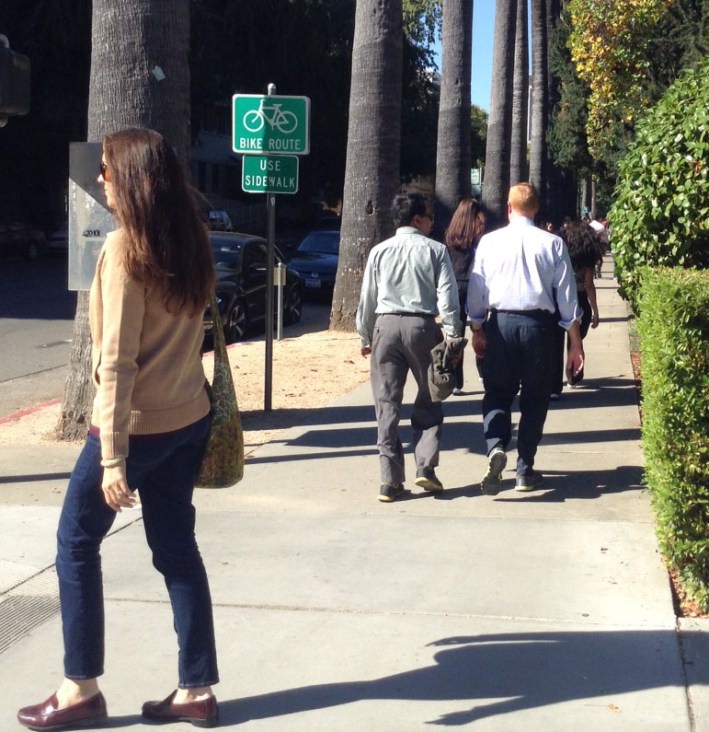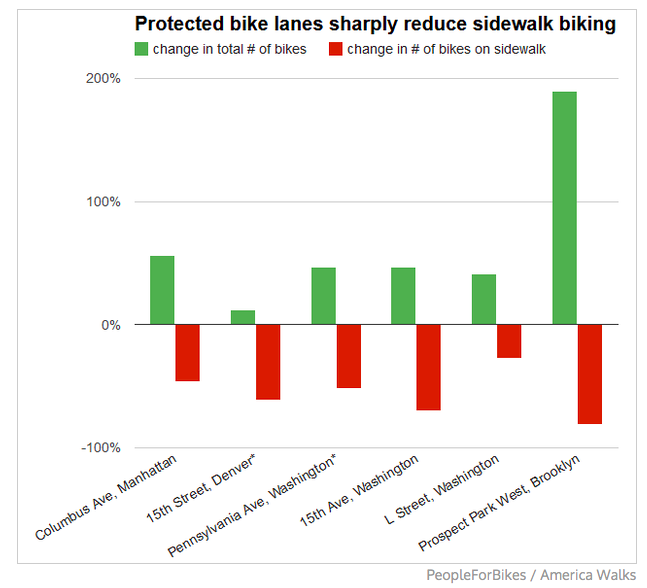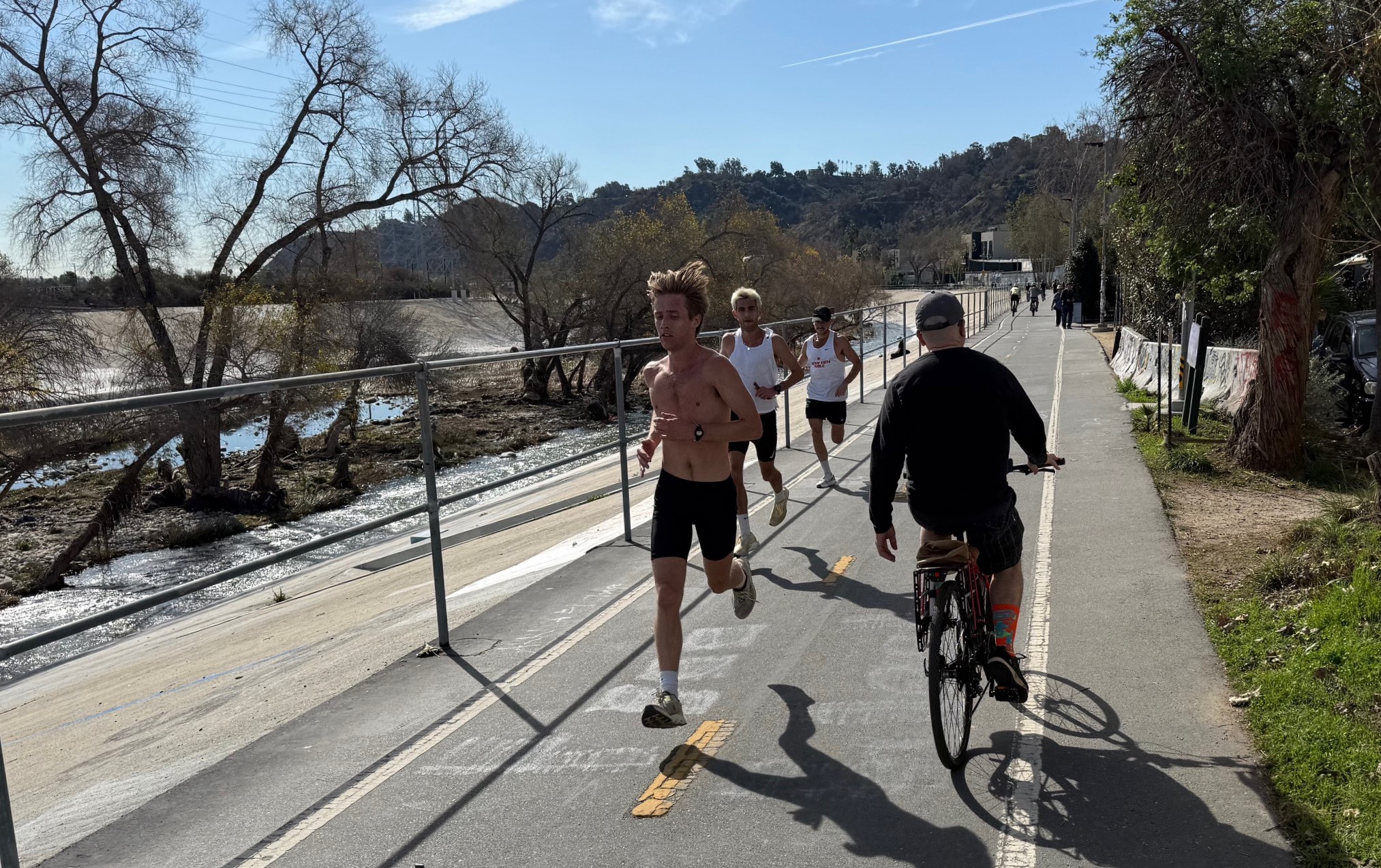
After a woman was hit by a bicyclist riding on a Sacramento sidewalk, she threatened the city with a lawsuit, and her attorney is pushing the city to pass one of the most restrictive bicycle licensing laws in the country.
Last Thursday, an attorney for Sacramento Bee writer Hilary Abramson submitted a proposal for an ordinance that would outlaw riding on sidewalks to the City Council's Law and Legislative Committee.
But the proposal went beyond just bikes on sidewalks. It would also have required bicycle riders to buy a city-issued license for $10, take an unspecified test, and register their bikes with the city.
Local station KCRA's first over-excited response to the story was that the committee now had to decide "whether to take this proposed ordinance to the city council." But the bike regulation idea got no traction at the meeting, and discussion among committee members focused on the original goal of the meeting, which was to clarify the city's rules on sidewalk riding.
Randi Knott of the City Manager's office, introducing the item for discussion, said that the city's top goal in updating its bicycle ordinance is to encourage the current growth in cycling in the city.
That, several speakers pointed out, is a goal that would not be met if the city imposed a ban on sidewalk riding. Jim Brown of Sacramento Area Bicycle Advocates (SABA) pointed out that unsafe conditions on Sacramento's street network often make bicyclists feel that riding on the sidewalk is their only safe alternative.
Brown also submitted written testimony to the committee, with suggestions for actions that the city could take immediately to address those conditions, including a seamless network of protected bike lanes, better signs, and traffic calming around the capitol, where the designated bike route is on the sidewalk [PDF].

Committee member Steve Cohn talked about areas where previous sidewalk bans had discouraged cycling. He said the former ban on riding bikes anywhere on the Sacramento State University campus, except for campus roads, made it less safe. "Fewer people rode bikes," he said. "The ban forced people to drive, or to ride illegally on campus, which many did rather than walk their bikes all the way to the center of campus.”
“People need to be careful wherever they are,” he said. “But let's be real: most of the danger comes from car traffic. We need to be smart about this, and not respond with a knee-jerk reaction.”
The consensus among committee members was that any decision needed to be data-driven.
“Let's look at sidewalks, infrastructure, and enforceable regulations, as opposed to unenforceable ones,” said committee chair Jay Schenirer. “We need a set of goals or principals around biking in the city than can help guide us over time.”
He directed staff to bring back more data about best practices nationwide, and to use the Bicycle Advisory Committee to help come up with recommendations for short- and long-term solutions for different parts of the city, which provide very different levels of safety for bicyclists.
“Then we can talk about an updated ordinance but also, beyond that, about creating a culture in Sacramento that's both bike and walk friendly,” he said, “and that serves our citizens.”
KCRA toned down its response on Friday with an interview with committee chair Schenirer.
When asked whether bicyclists should be allowed on the sidewalks, Schenirer said, "In the long term we need streets that are safer for bicyclists to be on. We're not quite there yet," he admitted. "It's also a cultural change, where drivers need to be aware that there are more bicyclists on the streets, and they need to be careful."
The plan is for committee members to with pedestrians and bicyclists, including WalkSacramento and SABA, the traffic division, police department, and planners over the next few months to discuss "how best to make it safe for everyone," according to Schenirer. At the end of January, the committee will make recommendations for a new bicycle ordinance through the City Council.
"I don't think the council or committee is interested in bike registration," Knott later said. "And if a ban on bicycles on the sidewalk is considered, it's likely to only be in areas with high pedestrian volumes."
The city is currently working on a master plan for its downtown streets called Grid 2.0 to study how to accommodate growth and encourage low-carbon transportation like bicycling, walking, and transit. "We're a 150-year-old city," said Knott. "The city is growing up, and we need to find a balance between users. We want to facilitate those who are trying to lower their carbon footprint, by biking and walking, but we also have to consider those who don't have that choice."






